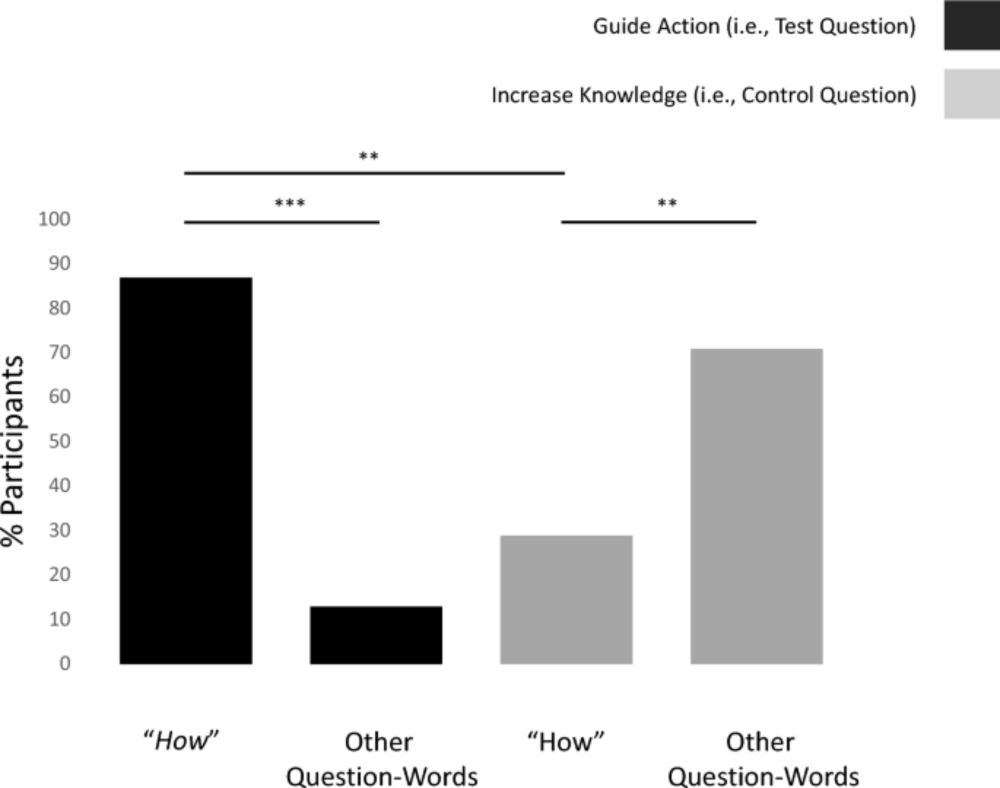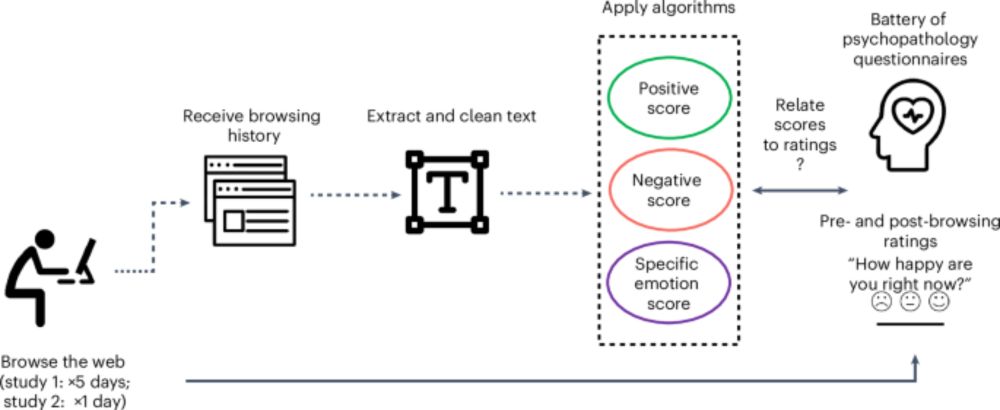3/3 So, monitoring the questions people ask online—rather than just the topic they search for—could reveal clues about both population and individual stress levels.
07.01.2025 01:45 — 👍 1 🔁 0 💬 0 📌 0
2/3 We examined this in two contexts:
1. A population-level study during COVID (Google “How” searches + self-reported stress)
2. A controlled experiment where stress was induced.
In both, higher stress aligned with an uptick in “How” queries.
07.01.2025 01:45 — 👍 1 🔁 0 💬 1 📌 0

“How” web searches change under stress - Scientific Reports
Scientific Reports - “How” web searches change under stress
New(ish) paper w/Tali Sharot & @bastien-blain.bsky.social! We find that during stress (both COVID and personal events), people search for more “How” questions online. This shift indicates a heightened demand for actionable info.
Link: nature.com/articles/s41...
🧵1/3
07.01.2025 01:45 — 👍 2 🔁 1 💬 1 📌 0
Digital Diet – Affective Brain Lab
6/ Sign up for the Digital Diet beta waiting list: affectivebrain.com?page_id=7596
Discover more in our preprint: arxiv.org/abs/2410.03866
@uclpals.bsky.social @uclofficial.bsky.social
27.11.2024 20:04 — 👍 0 🔁 0 💬 0 📌 0
5/ We have transformed this intervention into a new tool—Digital Diet—designed to improve web-browsing by labelling the emotional tone, practicality, and informativeness of online content.
27.11.2024 20:04 — 👍 0 🔁 0 💬 1 📌 0
4/ But there’s hope! We labelled the emotional impact of Google search results (indicating whether they were likely to make users feel better, worse, or neutral), which helped users make informed browsing choices, reduced exposure to negative content, and improved their mood.
27.11.2024 20:04 — 👍 0 🔁 0 💬 1 📌 0
3/ Causality: By manipulating the webpages people browsed, we then showed that:
-Negative content worsens mood;
-Worse mood drives people to browse negative content, creating a self-reinforcing loop.
27.11.2024 20:04 — 👍 0 🔁 0 💬 1 📌 0
2/ Using NLP, we analysed the emotional tone of webpages participants browsed (N = 1,145). We found that participants with poorer mental health tended to browse more negative content, which subsequently left them feeling worse.
27.11.2024 20:04 — 👍 0 🔁 0 💬 1 📌 0
PhD candidate in cognitive neuroscience @Yale // @NSFGRFP // Brown '20
Neuroscience PhD Candidate @sinaibrain.bsky.social | she/her
Palestinian scientist || PhDing Psychology @UCL & Max Planck UCL Centre. Studying decision-making, emotions & risk-taking behaviours
https://scholar.google.com/citations?hl=en&user=jKFZ1VgAAAAJ
Psych PhD @ Stanford
Affect, motivation & psychopathology in the brain
Twitter: @RyanYAN_98
Neuronerd, Prof, head of HIP lab in Experimental Psychology, Oxford. Researcher, UK AI Safety Institute. https://humaninformationprocessing.com/.
Associate Professor @ UCL. Experimental Psychologist. Interested in neural computations underlying social cognition.
https://www.wittmann-lab.com
Research Assistant Professor at Winston National Center/UNC Psych | Brains, Media-use, and Messy Feelings
anthonygvaccaro.com
PhD student @Max Planck UCL || RL and decision-making || Trying to understand how we process (dis)information 🧠🗞️
Incoming Asst Prof at Rice (2026)
Postdoc @UPenn, Duke PhD
🧠 Cognitive neuroscientist/psychologist exploring how we recall the past & predict the future to change behavior
Interventions for health, climate change, & education
http://sinclairlab-rice.com
Research Fellow in Digital Youth Mental Health at Orygen Digital & The University of Melbourne | Interested in Experience, Engagement, & Ethically Persuasive Design 🌳
Scot abroad and post-doc at KCL in computational psychiatry. Interested in natural and artificial thinking and learning
https://ingrdmrtn.github.io/
PI of the Human and Machine Cognition lab at the University of Tübingen and incoming Prof. of Computational Cognitive Science at TU Darmstadt | hmc-lab.com
Associate Professor at UCJC, Visiting Scholar at Stanford University, researching individual differences in emotion regulation, cognitive control, and metacognition. Cofounder and CEO of Mind Group
RA in Computational Psychiatry & Neuropharmacological Systems • MSc Clinical Neuroscience • BSc Psychology
Medical doctor and post-doc researcher
NIHR Academic Clinical Fellow in psychiatry
https://scholar.google.co.uk/citations?user=CHanxt8AAAAJ&hl=en
Computational psychiatry
Neuroimaging
Social cognitive neuroscience
Trying to embrace my ignorance
Assistant Professor of Neuroscience and Economics, Paris Panthéon-Sorbonne university.
I study mood and intrinsic rewards, using computational modelling and neuroimaging.
https://bastienblain.weebly.com/
Principal Researcher @ Microsoft Research.
Cognitive computational neuroscience & AI.
Writer. Nature wanderer.
www.momen-nejad.org
Prof of Decision Neuroscience, Sir Henry Dale Fellow & Jacobs Fellow, University of Birmingham @TheCHBH PI http://www.sdn-lab.org. Likes cats, decision-making, social behaviour & brains. Blog: http://tinyurl.com/Helpful-Brain
How do we learn to achieve our goals? 🧠Computational Cognitive Neuroscience PhD student UC Berkeley 🌿
Assistant prof @ Kellogg School of Management, Northwestern University. Studying emotion, morality, social networks, psych of tech. #firstgen college graduate

